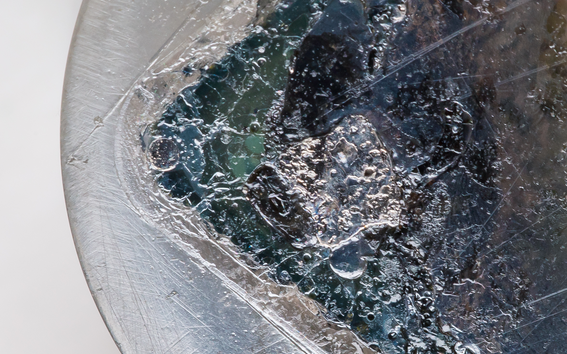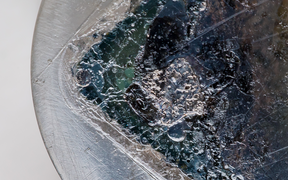Chemical and Metallurgical Engineering, Master of Science (Technology)

Degree:
Application period:
Language of instruction:
Duration:
Eligibility:
Field of study:
Credits:
Organising school:
Tuition fees:
Webinar | Chemical and Metallurgical Engineering
Want to hear more about the Master's Programme in Chemical and Metallurgical Engineering? In this webinar recording the programme representatives will introduce the programme and answer questions regarding the studies in the programme.

Description
In today’s world, environmental, social, and economical sustainability as well as process safety are at the very core of the development of processes where raw materials are converted to other chemicals, metals, and fuels. Industry experts are expected to know how to, for example, improve processes’ energy efficiency and advance towards a circular economy by reducing waste and recycling products.
In the Chemical and Metallurgical Engineering (CME) Master’s Programme, the main focus is on sustainable process development and implementation combined with the responsible use of natural resources. Students graduated from the programme have the necessary skills to work in varying process fields, such as the metallurgical, chemical, energy, forest, food, and pharmaceutical industries as well as the energy sector. Graduates are set for an exciting and meaningful career that enables them to accelerate the green transition.
On top of the skills acquired from their chosen major, our graduates have the same basic knowledge of the Chemical and Metallurgical Engineering field. All our graduates are able to:
- Apply engineering, natural sciences, and mathematics to solve complex problems in a chemical or metallurgical engineering context.
- Design sustainable industrial-scale processes.
- Aid the transition towards the use and production of renewable and recyclable resources.
- Make decisions based on raw materials’ criticality and availability.
- Select and design unit operations and processes for industrial applications.
- Demonstrate critical thinking skills in multidisciplinary groups to design economically feasible, safe, and ecological industrial processes.
- Use computer-aided tools for process modelling, simulation, and control.
- Follow the development of the field as well as acquire and use new scientific, technological, and societal information.
- Devise and communicate strategic outcomes that meet academic, industrial, and societal requirements.
Language of instruction
In the Chemical and Metallurgical Engineering Master’s Programme, the language of instruction is English.
Tuition fees and scholarships
The tuition fee for this programme is 17 000 euros per academic year. Citizens of European Union (EU), the European Economic Area (EEA) or Switzerland do not pay tuition fees. Citizens of other countries must pay tuition fees.
Aalto University offers a small number of scholarships in the form of tuition fee waivers to fee-paying students. Scholarships can be awarded to the highest-achieving applicants based on the programme's evaluation criteria. Applicants are ranked according to the criteria outlined on the programme's webpage.
More information on tuition fees and scholarships at Aalto University is available at the Scholarships and Tuition Fees webpage.
Structure of studies
The two-year Master’s Programme in Chemical and Metallurgical Engineering comprises a total of 120 ECTS credits:
- Major studies (60-65 ECTS)
- Elective studies (25-30 ECTS)
- Master’s thesis (30 ECTS)
All the compulsory and specialisation courses are intended to be completed during the first year. The second year is dedicated to elective studies and the Master’s thesis. You can choose practically any combination of elective courses – from Aalto as well as other universities in Finland and abroad – that supports your studies and suits your interests.
More information about the programme content and curriculum can be found in the Student guide.
Teaching methods
In this programme, teaching methods vary from lectures to laboratory work and process simulation with computer-aided tools. Students have the opportunity to use their acquired skills in a practical setting and develop new processes themselves. Additionally, many courses are carried out in cooperation with companies in the form of, e.g., industry assignments and projects.
Specialisations
The Master’s Programme in Chemical and Metallurgical Engineering offers two majors students can choose from:
1. Chemical and Process Engineering
The Chemical and Process Engineering major is based on a multi-scale perspective of underlying physical and chemical phenomena in chemical processes. You will have the opportunity to focus on:
- Heat and mass transfer, fluid dynamics.
- Unit processes, such as chemical conversion and development of new materials.
- Unit operations, such as purification technologies, utilisation of side streams, and separation of valuable materials.
- Process system engineering covering process modelling, simulation, and control.
2. Sustainable Metallurgical Engineering
Without metals, there would not be modern cities, energy, transportation, smartphones, or
many other products that are today considered the standard for quality living. Metals have been and will be one of the main pillars of a modern society and economy.
The Sustainable Metallurgical Engineering major is the only major in Finland focusing on the sustainable production and recycling of metals and minerals. Students develop a deep scientific understanding of these fields and are set for a career that allows them to truly make a difference in the world. Within this major, you can focus on:
- Hydrometallurgy
- Pyrometallurgy
- Minerals engineering
- Sustainable minerals processing and engineering
- Metallurgical thermodynamics and kinetics
- Circular economy in metals and other materials
Get to know us
Chemical engineering student Mauri Hartikainen: “With metallurgy, you can truly make an impact in building a sustainable future”
Mauri Hartikainen chose sustainable metallurgy as his Master’s major because he wants to be involved in developing clean technology solutions. What fascinates him most about metals is their almost limitless recyclability.

Jukka Niskanen brings polymer engineering expertise to Aalto University
Previously a researcher in Canada and Japan, Niskanen’s research involves the entire life cycle of polymers – from synthesis to the creation of finished materials, their properties, but also their post-use recycling.

Get to know us: Ville Alopaeus
Ville Alopaeus has worked as a professor at Aalto University School of Chemical Engineering since 2008. Researching separation processes and process modelling, Alopaeus aims to contribute to the transition towards a renewable energy and materials environment.

Internationalisation
Aalto University is known for its international study and research environment. Every year, Aalto welcomes thousands of degree and exchange students from abroad. Additionally, many of the Chemical and Metallurgical Engineering professors and researchers have international backgrounds and experience, bringing their global networks close to the students.
At Aalto, students can improve their global competence by, for example:
- Completing part of the degree, e.g., a minor, abroad in one of the international partner universities as an exchange student.
- Choosing courses with an intercultural approach, learning foreign languages and/or becoming a student tutor for international students.
- Conducting practical training or the Master’s thesis outside Finland.
- Taking summer courses abroad.
Further study opportunities
The Chemical and Metallurgical Engineering Master’s Programme provides a great foundation for doctoral studies.
Career opportunities
A shift towards sustainable manufacturing processes is occurring in all business and industrial contexts. Thanks to this, graduates from the Master's Programme in Chemical and Metallurgical Engineering can act as experts in industrial fields covering metallurgy and chemical production as well as in the forest, pharmaceutical and food industries and the energy sector.
As our graduate, you may work as a:
- Production and Design Engineer
- Industrial R&D Professional
- Scientist at academic and research institutes
- Safety and Sustainability Expert
- Industrial HR Manager
Aalto University has well-established career services that support students’ employment in Finland and abroad. Thanks to the flexible curriculum, many Aalto students work already during their studies and guarantee themselves entry positions before graduation.
Research focus
The Department of Chemical and Metallurgical Engineering focuses on sustainable utilisation of raw materials as well as designing and developing more efficient processes for new materials and products. The department is in a key position in research related to:
- Chemical engineering
- Materials technology
- Metals processing
- Efficient energy technologies
You can read more about the research at the Department of Chemical and Metallurgical Engineering here.
Co-operation with other parties
At Aalto University, students may choose their elective study modules and combine science, technology, business, and arts. Students can supplement their studies with courses from other Aalto schools and programmes as well as courses offered by other universities, including international. This multidisciplinary environment sparks new ideas, friendships, networks, and ever so often, startups.
One of the strengths of the Master’s Programme in Chemical and Metallurgical Engineering is close cooperation with the industry – from industry assignments, projects, and special courses with lecturers from the industry to conducting the Master’s thesis at a company. This level of cooperation is rather rare especially in the metallurgical field.
Evaluation criteria 2026
| What is evaluated | GPA of the bachelor’s degree |
| What we look for in an applicant? | The applicant's success in his/her previous studies (those that give basis for applying to the programme) will be evaluated based on the grade point average (GPA). Applicants are required to have a GPA equivalent to a minimum of 3.0 (on a scale 1.0 - 5.0, 1.0 being the minimum passing grade). |
| Method of demonstrating competence | Transcript of records, degree certificate, grading system. |
| What is evaluated | Content and quantity of previous studies in relation to the applied study option-specific requirements |
| What we look for in an applicant? |
BSc or equivalent degree in a relevant field in the natural sciences or engineering. Relevant degrees (fields): Chemical engineering, metallurgical engineering, minerals engineering, process engineering, or materials science/engineering Examples of key subjects: Fluid mechanics, transport phenomena and thermodynamics, unit operations, process design and modelling, process control and automation, materials science and engineering, metallurgical engineering, reaction engineering, polymer science/engineering, minerals engineering, materials recycling Knowledge and skills: Sufficient studies in at least some of the key subjects listed above are necessary. Applicants are expected to have a strong background in chemistry, physics, and mathematics. In addition to the studies giving basis to apply to the programme, other possible studies may also be evaluated. However, the study option should provide genuinely new knowledge and enhance the career prospects of the applicant. Thus, applicants who already have a master’s degree in a closely related field will only be admitted with well-justified reasons which should be explained in the motivation letter. |
| Method of demonstrating competence | Transcript(s) of records, degree certificate(s), grading system. |
| What is evaluated | Recognition and quality of the applicant's previous institution |
| What we look for in an applicant? | The applicant's previous institution (where the degree giving basis to apply was completed) will be evaluated based on the recognition and quality of the institution. |
| Method of demonstrating competence | International and national rankings of higher education institutions |
| What is evaluated | Applicant’s further applicability to the study option, motivation and commitment for the studies |
| What we look for in an applicant? |
The applicant must clearly demonstrate genuine motivation to study the chosen field. The applicant must also explain how his/her previous studies support studying in the chosen study option and why he/she would be a good candidate for the study option. Please see further instructions for the motivation letter below. The studies should provide genuinely new knowledge. If the applicant already has a master's degree, he/she should clearly indicate why he/she is applying to complete another master's degree. |
| Method of demonstrating competence | Motivation letter and CV |
Evaluation process
The applicants are first evaluated based on Aalto’s general eligibility requirements (found on https://www.aalto.fi/en/study-at-aalto/applying-to-masters-programmes). Applicants meeting the general eligibility criteria for master's studies are evaluated and ranked according to the evaluation criteria decided in advance for each study option.
The selection process for those who meet the general eligibility criteria is described next. First, the applications are evaluated based on the following (critical) criteria:
- Academic performance
- Relevance of previous studies
- Suitability
Only the applications that fulfill the requirements for these criteria will be evaluated against the full set of evaluation criteria.
After the evaluation of the remaining criteria below, the best applicants will be selected based on the joint evaluation of all criteria.
- Recognition and quality of institution
The programme does not have a minimum quota to be filled, and not all eligible applicants will necessarily be admitted.
Study option-specific documents
The documents required from all applicants are listed on https://www.aalto.fi/en/study-at-aalto/applying-to-masters-programmes. In addition, applicants to this programme are requested to provide the following study option-specific documents. In question concerning study option-specific documents, please contact the School of Chemical Engineering (studies-chem@aalto.fi).
Lack of this motivation letter will result in your application being rejected.
The letter should be maximum 4000 characters (with spaces) and fit in a single A4 page. The letter must be written in English. This character limit does not apply to the CV.
You should write a separate motivation letter for each study option you apply to.
In your motivation letter, please comment specifically:
1 Your reason(s) for applying to this programme: Why are you applying to this Master’s programme? What do you expect to gain from your studies in this Master’s programme?
2 Your future plans: In which sector would you like to work in the future? How do you think this Master’s programme would support your goals?
3 Areas of interest: Which major (Chemical Process Engineering or Sustainable Metallurgical Engineering) do you wish to pursue? What are your particular interests in the field of this major?
4 You as a candidate: Why do you think you are a good candidate for this Master’s programme? How will your previous education, work experience, knowledge and skills support your studies?
Attach your CV (max. 2 pages) to the motivation letter. The CV must be written in English. The character limit of the motivation letter does not apply to the CV.
If you have already completed another Master’s degree in a closely related field or have a study right to another Master’s or doctoral programme, you must explain why you are applying to complete another Master's degree.
The applicant must provide a document of the official grading system used in their Bachelor´s degree studies, indicating the lowest pass mark on the scale. The document may be an attachment to the degree certificate, a link to the grading system on the institution’s webpage or handbook, a diploma supplement or other reliable source. Applicants from Finnish Universities or Universities of Applied Sciences do not need to submit the document.
Contact information
School of Chemical Engineering
Questions concerning the Master's programme and the content of the studies as well as application-specific attachments can be sent to the Learning Services of the School of Chemical Engineering
studies-chem@aalto.fi
Aalto University Admission Services
If you have any questions regarding the application process, application documents or language tests, please contact Aalto University Admission Services
admissions@aalto.fi






